Singing the praises of folk culture
Soaring melodies of Hua'er songs inspire and captivate leading European music specialist

Summer breezes ripple across the eastern edge of the Qinghai-Tibet Plateau, turning the fields and mountains of Minxian county in Dingxi, Gansu province, a vibrant green. As farm work eases, villagers flock to flower-filled meadows, gathering for the region's Hua'er (flower) folk song festival. This year, among the crowds, a familiar figure returns: 69-year-old Dutch ethnomusicologist Frank Kouwenhoven, who records the singers' impassioned voices with quiet intensity.
The oral art form Hua'er, expressed in various dialects, originates from lyrics that compare women to flowers and has been cherished by nine different ethnic groups for hundreds of years. In 2009, UNESCO inscribed it on the Representative List of the Intangible Cultural Heritage of Humanity.
For Kouwenhoven, director of the European Foundation for Chinese Music Research, the visit continues a journey spanning over three decades.
In the 1990s, he and his wife, Sinologist Antoinet Schimmelpenninck, discovered the powerful, soaring melodies of Hua'er folk songs. Captivated, the couple embarked on expeditions into the rugged landscapes of Gansu and Qinghai provinces, seeking out these living mountain songs.
To explore the significance of music in the lives of local people, he and his wife often chatted with singers, forging bonds over snacks and beers. Sometimes, they even stayed at the homes of the local singers to fully immerse themselves in their lives.
They discovered that the folk singers' ease on stage contrasted with the demands of daily life. Kouwenhoven believes that music, as a natural expression of emotions, can help individuals find happiness and solace amid life's pressures.
From 1997 to 2009, they explored all the major Hua'er festivals in Gansu. Just as the couple's research on Hua'er was nearing results, Kouwenhoven's wife passed away from cancer in 2012, leaving him devastated.
The Hua'er project was subsequently put on hold, becoming an emotional burden he was reluctant to confront.
He returned to Gansu in 2017 after realizing that the best way to honor his late wife was to continue their joint research on Hua'er.
"When I walk the path to find the lyrics again, I feel my wife is with me," Kouwenhoven says. "This music is pure emotional expression. Hua'er is not just a living art form. It carries ancient history, the dreams of the land, and the strength of rural culture."
To promote Chinese folk music, he has donated a vast collection of research books and music materials, including the folk songs gathered over the years in China, to the libraries of Heidelberg University in Germany and Leiden University in the Netherlands, hoping that this would encourage more young scholars to engage in research in this field.
Driven by this enduring connection, Kouwenhoven has clear plans: producing a documentary on Hua'er and writing two books. One of the books will detail the tradition itself, and the other will chronicle their shared quest, according to Kouwenhoven.
"Hua'er is an incredibly precious cultural heritage," he says. "I am determined to share this magnificent music from Northwest China with the world, to let these voices be heard across the globe."
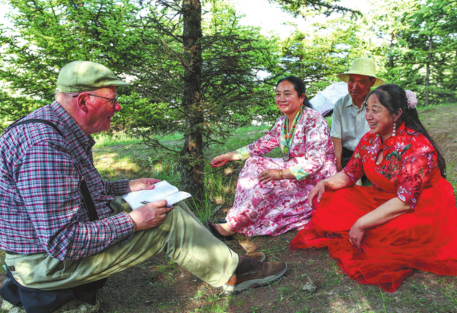

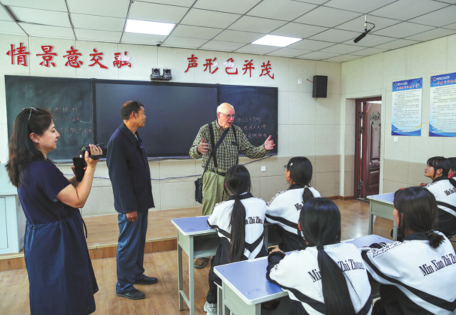
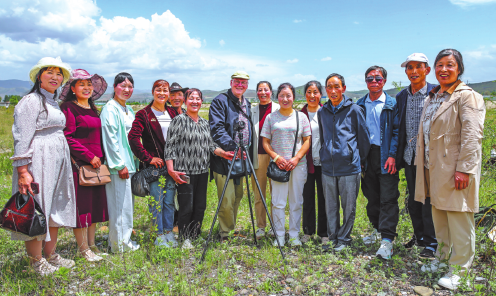
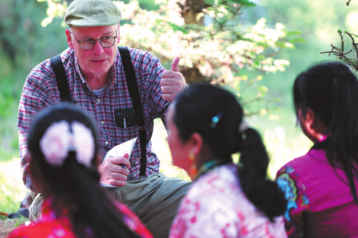
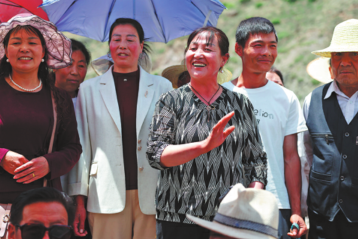
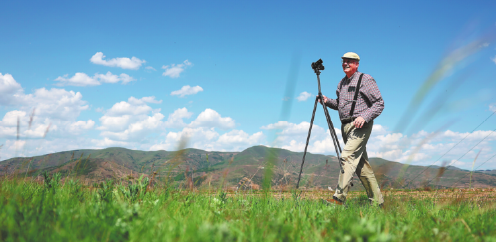
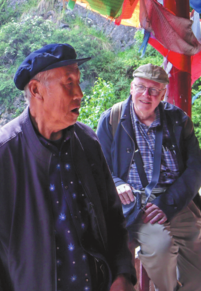
Today's Top News
- Mainland increases entry points for Taiwan compatriots
- China notifies Japan of import ban on aquatic products
- Envoy: Japan not qualified to bid for UN seat
- Deforestation is climate action's blind spot
- Japan unqualified for UN Security Council: Chinese envoy
- China, Germany reach outcomes after discussions






























